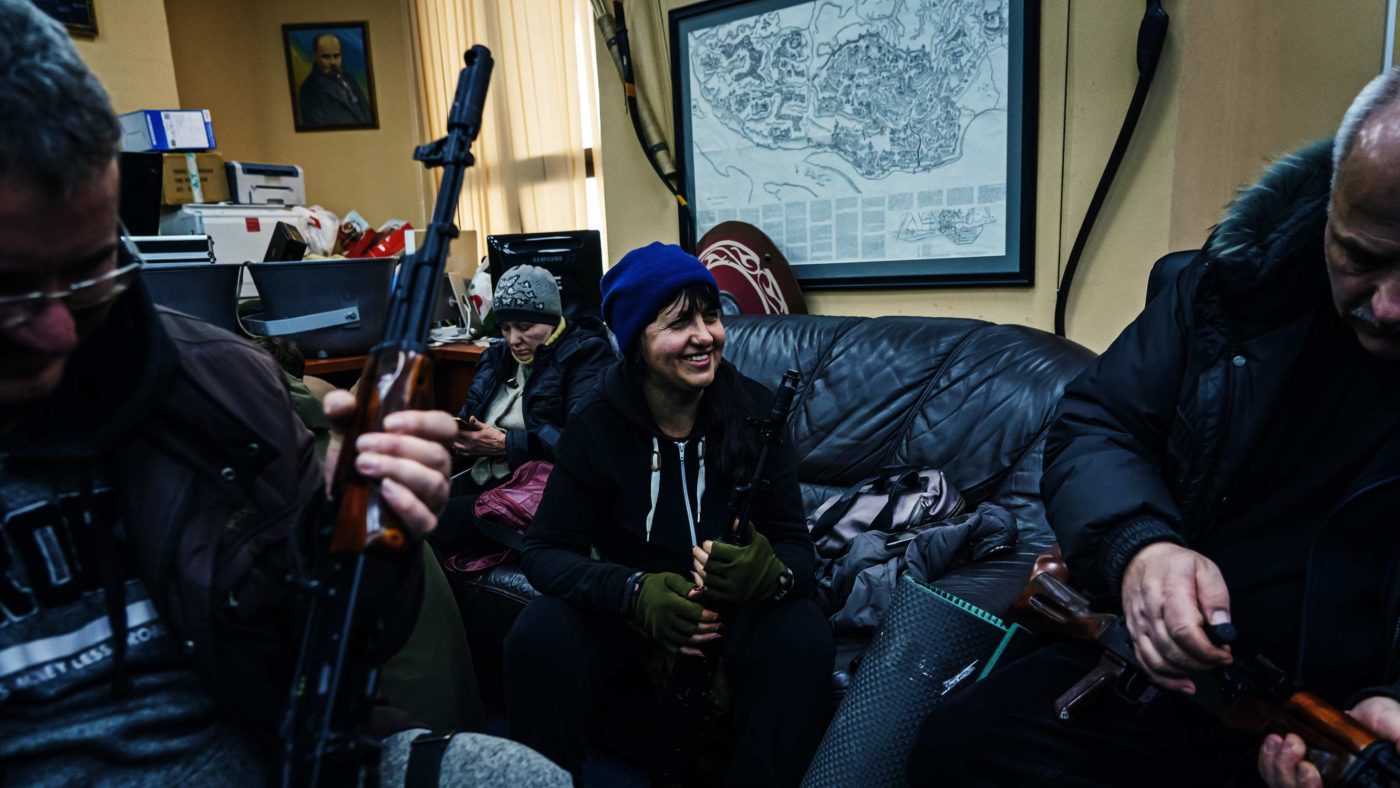‘Shock’ doesn’t seem an adequate word to describe the juddering nausea that descended on Thursday morning. It has since given way, at least in part, to a feeling of profound admiration for Ukraine’s armed forces and ordinary people.
To see elderly women preparing to take on a modern war machine with Molotov cocktails felt both horrifying and stirring in equal measure. It was also a vivid reminder that history might not echo but it rhymes, given that Molotov cocktails were invented by the Finns in 1939 to repel Stalin’s armies.
But tempting though it is to focus on the many stories of heroic Ukrainian resistance, the military situation looks very bleak. Although there is huge difficulty ascertaining and verifying what is going on – and Russia has made an art form of digital disinformation – it appears their troops have entered both Kyiv and Ukraine’s second largest city, Kharkiv, and are advancing on numerous other fronts. The Defence Secretary, Ben Wallace, says Putin plans to occupy the entire country.
What we can say with iron certainty is that the Ukrainian people and their armed forces have acquitted themselves with extraordinary courage. And whatever the criticisms of Volodymyr Zelensky since he became president, no one could begrudge his bravery in staying in Kyiv, knowing that he is a prime target for a vastly superior invading army.
One particularly striking image was the mayor of Kyiv, the former boxer Vitalii Klitschko, kitted out in battle fatigues with a machine gun. Here is a multimillionaire who could be living comfortably anywhere in the world, who could have fled the city, risking his life in the service of his country.
As for the West, this attack represents an epic failure of collective strategy and judgement, both short and long term.
It beggars belief that Germany, for instance, is only now sending military aid to Ukraine, far too late to have any deterrent effect or to meaningfully raise the cost of Putin’s maniacal adventurism. Although the British government did provide materiel and military training, we were much too slow to bring in the kind of sanctions that might have forced Putin and those around him to think twice. The former BBC Moscow correspondent Angus Roxburgh argues compellingly that it’s not just about sanctions per se, but about targeting the small group who actually have some influence over Putin (though how much anyone can penetrate his mental fog of Botox and malice is a moot point).
In the long term, the UK has been far too accommodating to members of a regime that has always been a menace, both to its own people and the nations in what the Kremlin considers its ‘sphere of influence’.
If there is a glimmer of hope that Putin can be hobbled, it lies not just in the staggering bravery of ordinary Ukrainians, but in the plan to target Russian state assets held abroad. A key part of Russia’s strategy since 2014 has been building up huge foreign reserves (both currency and golds) as a buffer against sanctions. Absent that his position would be far weaker and whatever ‘victory’ he claims indisputably Pyrrhic.
We don’t normally use these pages for public service announcements, but if you can send money to organisations helping on the ground, it might at least rescue some people from this nightmare.
Click here to subscribe to our daily briefing – the best pieces from CapX and across the web.


